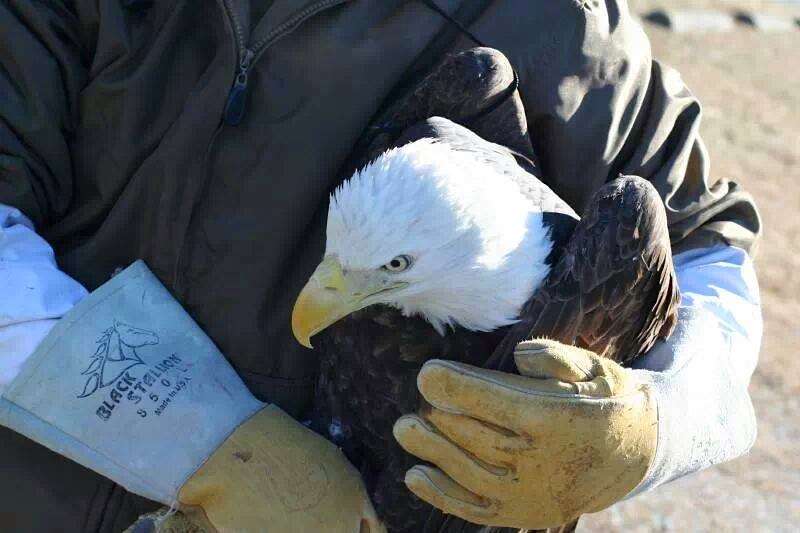Baby Boom Surprise For World's Most Endangered Orcas
There's a baby boom going on among a clan of the world's most endangered killer whales, increasing the number of orcas in that community by 3%.

Larry WhiteEagle-Fisher is certain that his Native American heritage is the source of his passion for birds of prey, and every day he cares for the injured ones like they're family.
"They're our brothers," he told the Good News Network. "You can't just leave them lying on the side of the road; you wouldn't leave your brother or sister if they were injured."
At his farm about an hour southwest of Richmond, Virginia, Larry and his wife Karen are the rarest sort of wildlife rehabilitators, taking in owls, hawks and eagles — most of them injured by cars. Their non-profit organization, Thunder Eagle Wildlife, is currently caring for seven owls, six of which were hit by cars.
Administering medical care to animals with such sharp talons and beaks, requires a lot of patience and tolerance. Even though Larry has been handling owls since he was five or six years old — taught by his grandmother to care for them whenever they fell out of nests or appear injured — he has been cut and bitten many times.
"There's always a risk when dealing with claws and talons," he said with a chuckle. "You can't get mad about it, because they don't always know you're trying to help them."
The youngest fledglings that come to the farm eventually need to be put through "Mouse School" so they can gain hunting skills. They are placed in an enclosed area with a live mouse.
There are no lessons or grades in this school, Larry said. "Their mothers and fathers don't teach them how to hunt — it's Nature."
They raise mice at the farm and also get donations from a lab in Maryland that gives them the "control group" mice.
Larry is amazed by the number of people who have never seen a live hawk, owl or eagle. One of the missions of Thunder Eagle Wildlife is to take live owls to schools and libraries and conduct educational programs. From their base in Mckenney they traveled to 26 locations around the state last year showing off three different owls native to Virginia.
"We had an adult at one of our programs ask how many teeth the owl had," admitted Larry.
"If we paid more attention to animals, it makes life less complicated," said the Army veteran who is of Apache and Cheyenne heritage. "They are all messengers."
The couple's goal for Thunder Eagle Wildlife, which also rescues songbirds, small mammals and waterfowl, is to expand their facilities to include extra large raptor cages, but for that they need funding.
On their website's Wish List they've listed needed supplies for those who want to give in-kind donations— everything from used towels to gauze sponges to fencing lumber. And the Paypal donation button at the bottom will except tax-deductible cash donations.
(Learn more in this news article from the Progress-Index) – Photos by permission from Thunder Eagle Wildlife Facebook page
Be the first to comment